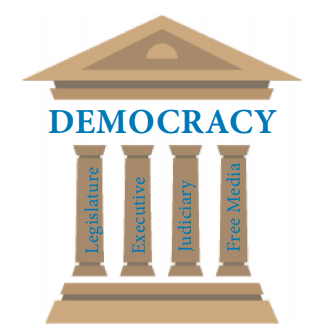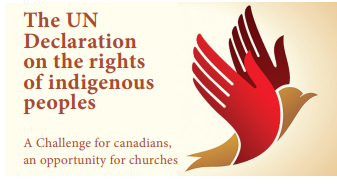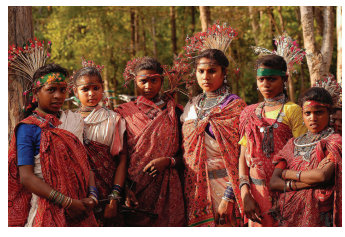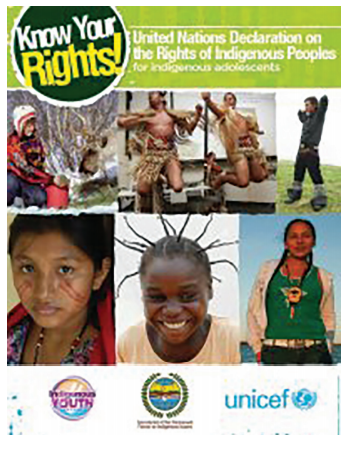Chapter: 11th Political Science : Chapter 5 : Democracy
Types of Modern Democracy: Representative and Participatory Democracy
TYPES OF MODERN DEMOCRACY:
Representative Democracy:
A representative democracy is the system of
government in which all qualified citizens vote to elect their representatives
based on the constituencies divided by the population or eligible voters.
People elect their representatives to power to run
the government through political parties according to their views on ideology,
principle, policies and programme for their socio-political and economic development.
The parties are allowed to have choose the candidates on their own to attract
the masses and winning chances.

During the election they announce to the people
about their programmes and policies are known as the ‘party manifesto’. A
transforming country like India, every national and regional party used to
release their election manifesto to have a direction and trajectory of their
future plan of action so as to win the confidence of the masses.
The individuals are allowed to contest elections as
independent candidates too, if they do not wish to belong any political party.
The role of political parties is vital in a representative democratic system.
The members of political parties keep the people informed about important
issues by holding public meetings, for either supporting or opposing the
policies of the government. Thus, the political parties mobilize the people in
knowing their needs and in turn mould the public opinion. The representatives
are constitutionally recognized and entitled to execute their duties and
responsibilities in the people’s interest, with authority.
Representative Democracy is closely associated with
Liberal Democracy which describes the political system which originated in the
USA and Western Europe and has subsequently been adopted in numerous Third
World countries and may gradually be well established in the former USSR and
its former states in Eastern Europe. Liberal Democratic regimes may be
classified as either Presidential or Parliamentary systems and there are also important
variations within these broad categories. Representative democracies are based
upon numerous interconnected principles:
The existence of regular, free, fair elections
based upon universal suffrage and secret ballots under the supervision of Election
Commission as an independent body.
·
The existence of competing
political parties offering electoral choice.
·
The existence of electoral laws
supervised by an independent judiciary.
·
Freedom of speech and
association.
·
Freedom to stand as an election
candidate.
ACTIVITY
The sessions could be watched in the
television where the MLAs and MPs of our constituencies raising issues related
to their particular constituencies.
This can be practiced for electing
the Leader of the Class through a secret ballot system according to the wish of
students.
Student parliament can be organized
to take part in discussion with parliamentary procedures. Case Study
MORE THAN A SYMBOLIC CELEBRATION
We must step up our common efforts to
make the U.N.Declaration of the Right of Indigenous Peoples something more than
a mere pledge of intent.
The estimated 370 million indigenous peoples need
and deserve more than just symbolic celebrations on August 9, when they
commemorate everywhere the International Day devoted to the reaffirmation of
the value and resilience of indigenous life and cultures. After centuries of
repression, they need comprehensive tools to defend their human rights, their
way of life, and their aspirations.

One such tool is the U.N.Declarasion on the Rights
of Indigenous peoples. It established their right to self-determination and to
maintain and strengthen their district political, legal, economic, social and
cultural institutions, while retaining their right to participate fully in
public life. Crucially, this document underscored indigenous peoples’ right to
preserve or freely dispose of and trade, their traditional lands and resources.
Following negotiations that spanned more than two
decades, the Declaration was adopted in September 2007 by the General Assembly
with the support of 143 Member States. This support keeps expanding.
Significally, Colombia and Australia – two of the countries that originally did
not approve the text have now endorsed the Declaration. These developments are
encouraging, but we must continue to strive for universal acceptance of this
crucial document.

Such acceptance is key to counter the daily
hardship and discrimination that indigenous people endure. It is estimated that
at least one in every ten indigenous peoples in the world is facing extreme
poverty. These peoples are more likely to receive inadequate health services
and poor education – if any at all. Economic development plans often bypass
them or do not take into sufficient consideration their particular needs and
traditions. Other decision making processes are often equally contemptuous of,
or indifferent to, their contribution and customs. As a result, law and
policies designed by majorities with the regarded to indigenous concerns
frequently lead to land disputes and conflicts over natural resources that
threaten the way of life and the very survival of indigenous peoples.
We must step up our common efforts to make the
Declaration something more than a mere pledge of intent. We must translate its
letter and spirit into concrete change – change that can be felt in indigenous
peoples daily lives.

In line with the United Nations Declaration of the
Rights of Indigenous Peoples and other human rights instruments, States,
indigenous peoples, the United Nations system and others concerned must join
efforts and reach solutions based on true dialogue, mutual understanding
tolerance and respect for human rights.
Courtesy: NavanethenPillay,
U.N. Information Centre, New Delhi
With reference to the U.N.
Declaration on the Rights of Indigenous Peoples answer the following questions:
Give three reason for the importance of Indigenous
Rights today.
Write in your own words that the Indigenous rights
are inalienable, interdependent and indivisible?
Name any four human rights included in the UN
Declaration on the Rights of Indigenous Peoples which have been incorporated in
the Constitution of India
Participatory Democracy:
Participatory democracy is been promoted to achieve
equity reversing the concept of equality. In the recent days participatory
democracy is a process that enables and ensures the wider participation of
constituents in the direction and operation of political systems. Democracy
tends to support more involved forms of citizen participation than traditional
representative democracy. A civil society based concept, participatory
democracy attempts to create opportunities for all members of a group to make
expressive contributions to decision-making, and to increase the range of
access to such opportunities. Social relations is base for its “political”
operation in that it revolves around a structure of authority increasing and
extending the scope of participation and political equality involves
democratizing society.
The aim of participatory democracy is to make
people interested to take part in the political, legal and economic processes
of the state and also to make people more responsible for the decisions made.
The important feature of a participatory democracy is that people will have the
opportunity to directly participate in the functions and access to the
decision- making institutions of state and there shall be no provision for
delegating power to another body or organ. It is designed to revitalize the
democratic participation in the era of economic growth, to redress the
inequality among the people. The most important characteristic is the
importance of political equality in democratic system a long side basic or
fundamental rights, liberties that needs emphasis and to be highlighted.
Related Topics